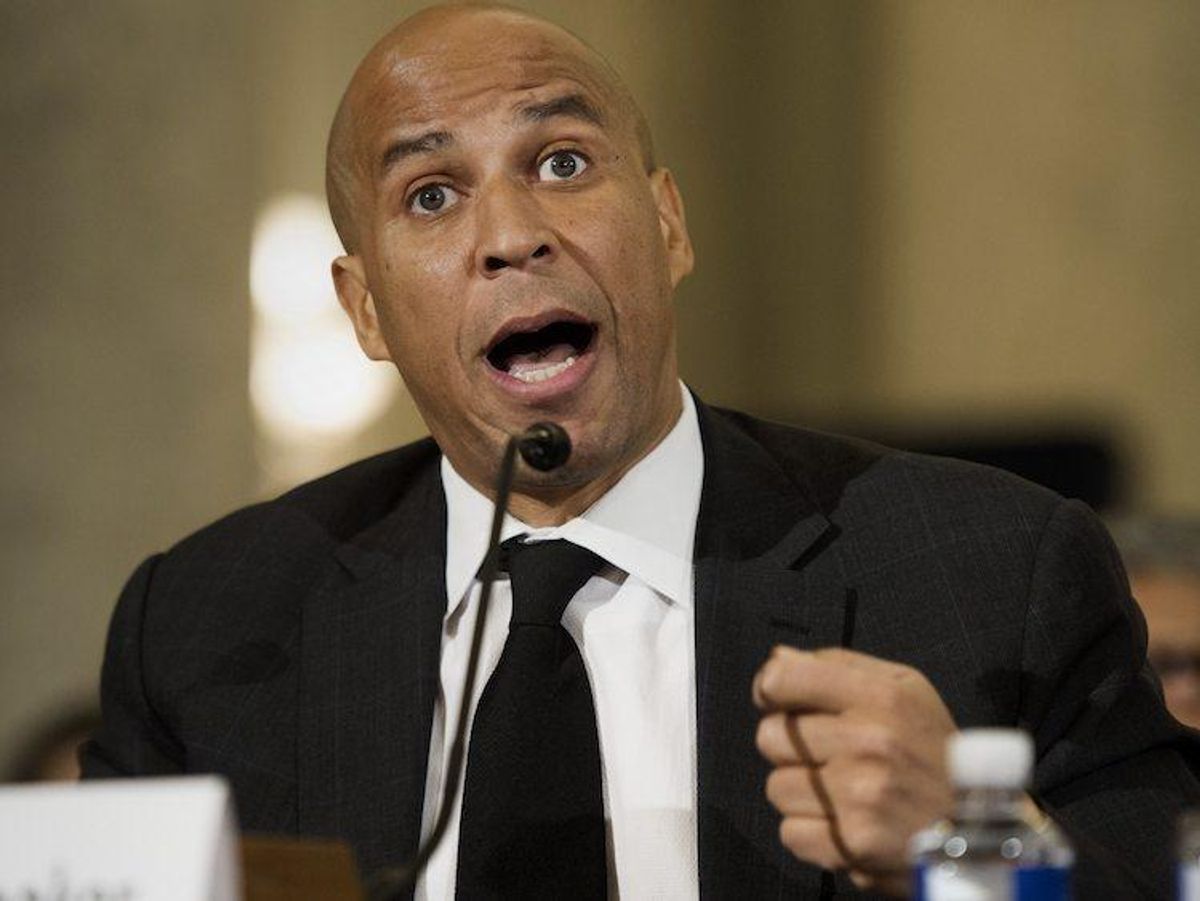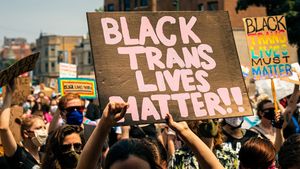Jeff Sessions can't be trusted to defend the rights of LGBT people, women, immigrants, and racial minorities if he becomes U.S. attorney general, Sen. Cory Booker said Wednesday.
Booker, the junior U.S. senator from New Jersey, made the remarks during the second day of Sessions's confirmation hearing before the Senate Judiciary Committee. Sessions, nominated by President-elect Donald Trump to be attorney general is currently a senator from Alabama, and Booker's testimony today marked the first time one sitting U.S. senator has testified against another who's up for a Cabinet position.
"If confirmed, Sen. Sessions will be required to pursue justice for women, but his record indicates that he won't," Booker said, according to The Washington Post. "He will be expected to defend the equal rights of gay and lesbian and transgender Americans, but his record indicates that he won't. He will be expected to defend voting rights, but his record indicates that he won't. He will be expected to defend the rights of immigrants and affirm their human dignity, but the record indicates that he won't."
Indeed, the Republican Sessions has an anti-LGBT and antichoice record, and he voted against the latest version of the Violence Against Women Act. He has been criticized for his prosecution of black activists in a voter-fraud case while a U.S. attorney in Alabama, and he has been accused of making racist remarks -- something he has denied. He also pledged Tuesday, the first day of the hearing, that he would defend women's and LGBT rights, even standing up for laws and court rulings he had opposed.
Booker, a Democrat, obviously was not convinced. "Senator Sessions has not demonstrated a commitment to a central requisite of the job -- to aggressively pursue the congressional mandate of civil rights, equal rights and justice for all of our citizens," Booker said. "In fact, at numerous times in his career, he has demonstrated a hostility toward these convictions."
Booker acknowledged that some of his colleagues were not pleased that he was breaking with Senate tradition by testifying against Sessions, but said it was a matter of conscience. "In the choice between standing with Senate norms or standing up for what my conscience tells me is best for our country, I will always choose conscience and country," he said.
"Sessions is generally well liked in the Senate, despite views that draw polarized responses," the Post notes. He was introduced to the committee Tuesday by Sen. Susan Collins of Maine, one of the body's most liberal Republicans.
A member of the House of Representatives testified against Sessions as well -- John Lewis, who marched for civil rights with Martin Luther King Jr. in the 1960s. "We need someone who is going to stand up, speak up and speak out for the people who need help, for the people who have been discriminated against," Lewis said, asserting that is not Sessions, NBC News reports.
Also testifying against Sessions today were NAACP president Cornell William Brooks, American Civil Liberties Union legal director David Cole, rape survivor Amita Swadhin, and Oscar Vazquez, who came to the U.S. from Mexico as an undocumented immigrant at age 12 and eventually gained legal status, joined the Army, and served in Afghanistan.
Brooks said Sessions's record "evinces a clear disregard, disrespect and even disdain for the civil and human rights of racial and ethnic minorities, women, the disabled and others who suffer from discrimination in this country," the Associated Press reports. The NAACP Tuesday released a letter written by the late civil rights activist Coretta Scott King saying Sessions had used his power as a U.S. attorney "in a shabby attempt to intimidate and frighten elderly black voters."
Cole voiced concerns about the senator's views on a range of civil liberties. Swadhin objected to Sessions's initial comment that grabbing women by the genitalia, as Trump once bragged of doing, did not constitute sexual assault; Sessions Tuesday said it clearly does and that his earlier statement was in error. Vasquez said undocumented immigrants, including those who came here as children and were able to obtain work permits under an executive order by President Obama, were worried about Sessions's handling of immigration issues.
Those testifying in his favor included Michael Mukasey, who was attorney general in the last year of George W. Bush's presidency; Peter Kirsanow, a member of the U.S. Commission on Civil Rights; and Chuck Canterbury, president of the Fraternal Order of Police. They described Sessions as dedicated to the rule of law, and Canterbury predicted Sessions would improve relations between police and the Justice Department, which the attorney general heads.


















































































